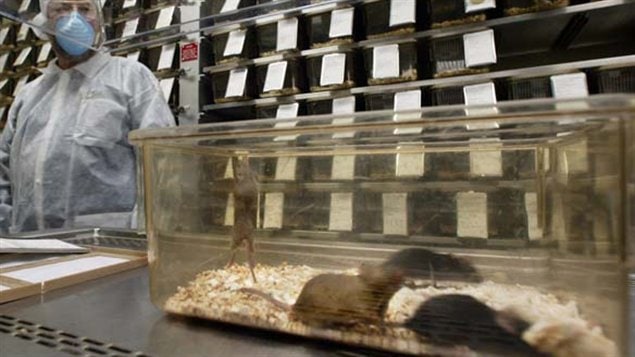Roughly 90% of new pharmaceutical drugs being developed never make it to market.
A new report published in the respected journal PLOS says that much of the research effort is actually wasted by not eliminating dead-end drugs early in research. This is because sometimes basic research standards in trials are not rigourously employed. This means costly research continues unnecessarily into drugs which would normally have been shown to have little or no promise.
The report makes several recommendations to improve lax methodology, especially in pre-clinical trials in which new drugs are tested on animals. It says this is a contributing factor in high failure rate of new drugs when translated to clinical trials with humans where controls are usually much more rigourous, and the failures are finally revealed.
Dr Jonathan Kimmelman is lead author of the report. He is an associate professor of Biomedical Ethics at Mcgill University in Montreal, and founder of the research and advisory group STREAM (Studies of Translation, Ethics and Medicine)
Listen
The report points out that a great deal of time, effort, and expense goes into researching new drugs.
It says more rigourous scientific practices employed during pre-clinical research would reveal much earlier whether a drug had clinical potential.
Discovering such “dead ends” earlier in the research and development process would result in enormous savings of time, effort, and costs.
“This high rate of failure in drug development drives high pharmaceutical prices,” Professor J Kimmelman
Dr Kimmelman points out because so much money is wasted on dead end research, consumers end up subsidizing those astronomical expenses through the high prices they pay for the drugs that do make it to market. “The high rate of failure in drug development drives high pharmaceutical prices”, he says.
The report also notes that because of lax methodology, some inadequately evaluated drugs make it to the clinical stage where they are tested on humans.
Professor Kimmelman says one of the harms of poorly conducted animal studies is the fact that many more patients than needed are exposed to unsafe and ineffective agents when drugs are advanced into clinical development on flimsy animal evidence. This is in addition to the high costs of clinical trials for drugs which will ultimately be proven to be failures.
Although not mentioned in the report, Dr Kimmelman also expressed concern over “publication bias”. This is where research is published of successful or seemingly promising trials, but very seldom published of other trials of the same drug which were inconclusive or negative.

This in turn may influence other researchers to spend time and effort uselessly exploring a drug they think holds potential because they had no access to the negative trials showing it was probably a dead end.
Professor Kimmelman adds that the issue of lax methodology is not specific to any one country and that cases may be found throughout the medical research world. He does note that some specific fields, such as cancer research, have more problems than others.
The paper makes several recommendations to improve research methods and he says that by raising the issue again, as others have before him, there is already some movement towards improving medical research practices.
McGill University- J Kimmelman







For reasons beyond our control, and for an undetermined period of time, our comment section is now closed. However, our social networks remain open to your contributions.